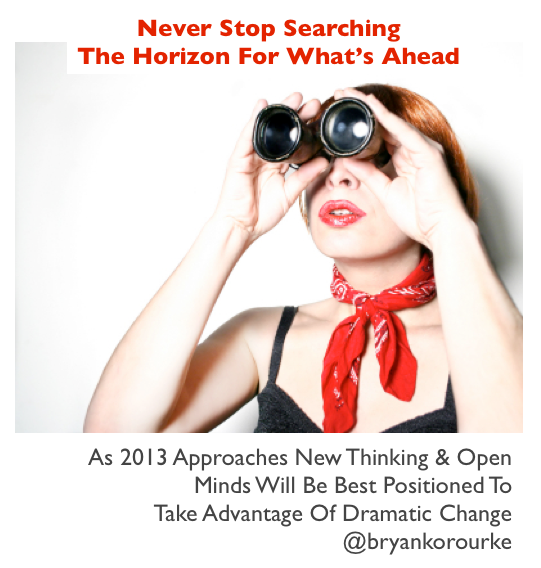How Technology Can Make Human Experience Richer And Better - A Case In Point
/
People often see technology as being the antithesis of humanity. I guess this view was created in the mind of Terminator fans years ago (Watch The "I'll Be Back" Scene). The evidence doesn't always substantiate the modern world reality on this point. For example, Amazon's Net Promoter Score was second highest among US brands last year at 76 . You don't speak to a human when buying from Amazon yet the brand outperforms banking giant ING with a NPS of only 48. Perhaps the technical human divide isn's so wide. The point is technology can serve needs and augment human interaction in very impactful ways, creating more human experiences. Helping people reach their potential and contribute when they might not be able to otherwise is the greatest example of the potential technology offers to augment humanity; and its just getting started.
Here's a case in point, thanks to a recent tweet from @AugieNieto whom I follow closely on twitter, with respect to people suffering from disabilities or various physical limitations due to a variety of conditions and situations. If you are in the fitness industry you no doubt are well aware of Augie and his teams fight to progress research around ALS. My colleague and dear friend @LindseyRainh2o has a family member battling the disease as well and we are supporters of Augie's Quest to identify a cure and you should be one to :) . Augie's recent tweet included a TED Talk, below for your review, that demonstrated the power of technology in enabling people to continue to lead meaningful lives despite their limitations ( Thank you Augie). Here's the story of Henry Evans as described n the Ted Talk website.
At age 40, Henry Evans was left mute and quadriplegic after a stroke-like attack caused by a hidden birth defect. Years of therapy helped him learn to move his head and use a finger -- which allows him to use a head-tracking device to communicate with a computer using experimental interfaces.
Now, Evans is a frequent and enthusiastic collaborator with robotics teams who are developing tools to help the severely disabled navigate their lives. He collaborates with Georgia Tech professor Charlie Kemp on using the Willow Garage PR2 robot as a surrogate, as well as Chad Jenkins' RLAB at Brown on quadrotors for expanding range of motion.
As the Willow Garage blog post says: "Every day, people take for granted the simple act of scratching an itch. In Henry's case, 2-3 times every hour of every day he gets an itch he can't scratch. With the aid of a PR2, Henry was able to scratch an itch for himself for the first time in 10 years."
Technology is a great human accelerator. Using it wisely can make a big impact on the lives of not only Henry but everyone. What do you think? I'd love to hear your views. As the health club industry increasingly interconnects technology and human interaction I think its important to keep these real world examples in mind. The potential to create meaningful human experiences by relying on technology in the right way is limited only by our imagination. Do you agree ?
About Bryan
Bryan O’Rourke is considered by many to be a thought leaders on technology, health club and wellness trends. He has been quoted in global periodicals like the Wall Street Journal, and has been published in journals around the world on his views of how technology will create the dawn of a new era of opportunity for the health club and fitness industries. In addition to being an industry expert, Bryan is a technologist, financier, shareholder and executive in several fitness companies. He has spoken on a range of business and trend topics on four continents. As a contract executive and advisor, Bryan wears many hats, including working for Fitmarc, which delivers Les Mills programs to over 700 facilities in the US. He advises successful global brands, serves as a member of the GGFA Think Tank, on ACE's Industry Advisory Panel and is CEO of the Fitness Industry Technology Council. To join FIT-C visit www.fit-c.org . To learn more contact Bryan here today .












